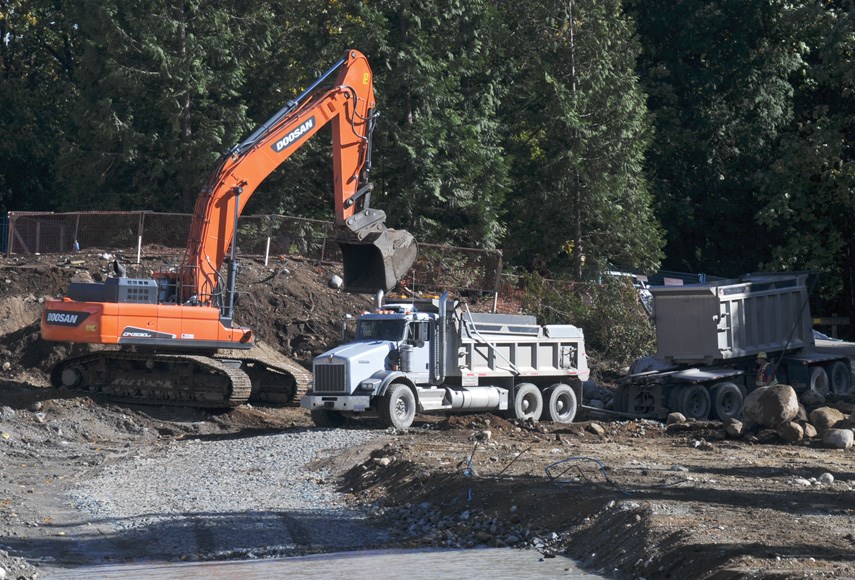Silence, famously, is golden. Violating that silence in the City of North Vancouver may soon cost you $1,000.
City council passed a suite of bylaw and policy changes Monday night aimed at muffling the urban racket.
The comprehensive report lays out the most common types of noise complaints the city receives and what can be done about them.
Of the 256 noise complaints submitted in 2020, 52 per cent were due to construction work being done outside the permitted hours. Staff note a “consistent pattern of non-compliance” over the last 18 months and have been writing bylaw enforcement notices, a city staff report notes, and two builders have been slapped with stop work orders.
The new noise bylaw will also shorten the allowable time for construction on Saturdays by two hours, requiring everyone to put down their hammers and saws by 5 p.m.
When it comes to construction site radios, the city will be updating its “good neighbour agreement” with developers to prohibit music on the job site.
For most decibel disputes, the city intends to continue using education as the first line of defence, but for more serious cases that require bylaw enforcement, fines for violators are being raised to $1,000.
The new bylaw also adds a new penalty for high-pitched “tonal” noises like air conditioning units or power tools, if they are found to be violating the bylaw.
In 2014, the city’s noise bylaw was challenged in court by a busker after she was ticketed for using an amplifier and microphone in her performances. A judge tossed out her tickets after ruling her music couldn’t be considered “noise” as defined in the bylaw. The rewritten bylaw now prohibits “amplified sound,” which comes with a $200 fine. The city gets about 19 such complaints per year.
The city is also planning a number of in-house changes to lead by example, including no longer allowing construction on city parks to happen on Saturdays, replacing city vehicles and equipment with quieter electric options when available, and transitioning from traditional beeping alarms for reversing heavy equipment to more white noise-like “broadband” alarms.
Some common complaints, however, are not addressed in the bylaw. When it comes to obnoxious vehicle mufflers, horns or alarms, bylaw officers don’t have the authority or training to stop drivers, the report concedes, and “more review is required.”
Staff intend to continue studying the noise pollution issue with an eye (or ear) to more changes by summer 2022.
The vote on the new bylaw and future actions passed unanimously.
Coun. Tony Valente, who has been pushing the city over the last term of council to deal with noise pollution, welcomed the changes.
“The health impacts are real. It's documented and recognized that, after air pollution, this is the primary health factor for urban living,” he said. “I think the only way we're going to change the culture on noise is by making a little bit of noise. I think it's been too long and I think folks have realized through the pandemic that this is an important health factor. In other countries in the world, it is a focus.”
Mayor Linda Buchanan acknowledged that the majority of complaints were related to construction and transportation, but the city will continue to bustle and grow, she added, especially in the Lonsdale area.
“That's a fact that's not going to change,” she said. “I think this bylaw will ensure we are balancing community needs and I'm very pleased to support it. I know there's more work to do.”



